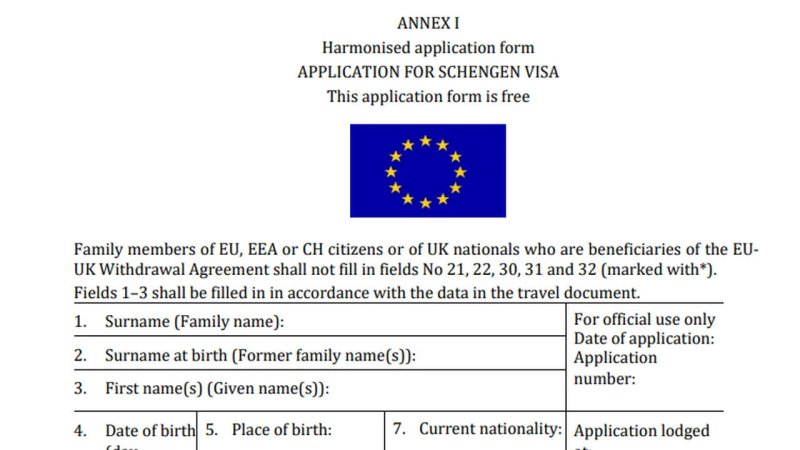Traveling to Europe? If you're planning to visit Bulgaria, the new Schengen Bulgaria visa might change how you travel. Now that Bulgaria is fully part of the Schengen Area, there are new rules for borders, visas, and what travelers need to prepare. Here's a quick overview of what this means for you—and how to get your visa, if you need one.
Bulgaria’s entry into the Schengen area
With its full adoption of the Schengen acquis:
March 31, 2024: Internal air and sea border checks with Schengen countries were abolished.
January 1, 2025: Internal land border checks with Schengen states (notably Romania) were lifted.
Bulgaria now issues uniform Schengen visas (type C), valid across all Schengen countries.
Why visit Bulgaria?
Bulgaria is a hidden gem in Europe, offering a blend of nature, history, and affordability. Here’s why it’s worth your visit:
Rich heritage: Discover ancient ruins, Thracian tombs, Orthodox monasteries, and Roman amphitheaters.
Natural beauty: Hike the Rila and Pirin mountains or relax on the sunny Black Sea coast.
Affordable travel: Enjoy great food, wine, and accommodation at a fraction of Western European prices.
Culture & cuisine: Try traditional Bulgarian dishes like banitsa and shopska salad, and explore colorful folklore festivals.

Additionally, it’s one of the easiest Schengen countries to get a visa.
Schengen Bulgaria visa explained
A Schengen Bulgaria visa (Type C) allows non-EU nationals to visit Bulgaria and other Schengen countries for short stays of up to 90 days within any 180-day period. It’s suitable for tourism, business, family visits, cultural activities, and more.
If Bulgaria is your main destination, this is the visa you’ll need—even if you plan to visit other Schengen states during your trip.

Do you need a visa to visit Bulgaria?
It depends on your nationality. Citizens of many countries—including the U.S., UK, Canada, Australia, and the UAE—do not need a visa for short stays (up to 90 days in a 180-day window).
But if your country is not visa-exempt, you’ll need a Schengen visa (Type C) to enter Bulgaria.
You can check your eligibility with our visa tool.
What about Schengen ETIAS?
ETIAS (European Travel Information and Authorization System) will become mandatory for visa-exempt travelers starting late 2025. Until then, travelers from countries like the U.S., UK, Canada, and Australia can visit Bulgaria without ETIAS.
Bulgaria Schengen visa requirements
Here’s what you’ll generally need for your visa application:
Visa application form: Completed and signed (can be filled online depending on your country).

Passport: Valid for at least 3 months after departure from Schengen, issued within the last 10 years, with at least 2 blank pages.
Passport photos: Two recent photos, size 35x45mm, white background.
Travel itinerary: Flight bookings showing entry/exit dates.
Proof of accommodation: Hotel bookings or an invitation letter from your host in Bulgaria.
Travel insurance: Must cover €30,000 in medical expenses, valid across all Schengen states.
Proof of financial means: Bank statements, pay slips, or sponsor documents showing about €100 per day for your stay.
Visa fee payment: 107 USD (may vary in cases of reciprocity or international agreements).
Additional documents (by purpose):
Tourist: Travel plan, hotel confirmations.
Family visit: Invitation letter, proof of relationship.
Business: Invitation from the Bulgarian company, business license.
Conference: Event registration or invitation.
Official travel: Note verbale or official letter.
Schengen Bulgaria visa appointment
You must book a Schengen visa appointment at the relevant consulate or visa application center (VAC) in your country. Each applicant (including children) needs a separate appointment.
Appointments during peak travel seasons (summer, holidays) can fill quickly, so book early!
Schengen Bulgaria visa fee
Schengen Bulgaria visa (Visa C - Short Stay) fee is USD 107. However, you don't need to pay if:
Children under 6 (or 12 for short-stay visas),
Family members of EU or Bulgarian citizens,
Holders of diplomatic or service passports.
How to apply for Schengen Bulgaria visa easily
Want a smooth, stress-free Schengen visa application process? Let Anyvisa guide you every step of the way:
Identify exactly which documents you need based on your reason for travel
Avoid the most common errors that can lead to a visa refusal
Get support with booking your visa appointment and biometric submission
Ensure your travel itinerary meets all Schengen zone entry requirements
With over 17 years of immigration expertise, Anyvisa takes the guesswork out of your Schengen visa application, so you can focus on planning your trip.
Submit your application at least 15 working days before travel, and no earlier than 6 months before your trip.
Schengen Bulgaria visa processing times
Short-stay visas (A and C): ~15 calendar days
Long-stay visas (D): ~35 business days, but may take up to 6 months
Applicants are advised to plan ahead and avoid last-minute travel arrangements.
Apply for your Schengen Bulgaria visa today!
With Bulgaria’s full integration into the Schengen Area, traveling to and from the country is now more seamless than ever for many global citizens. However, travelers must stay informed about changing entry policies, including the upcoming ETIAS requirements, and ensure they apply for the right visa with all required documents.

FAQs
Can I extend a Schengen Bulgaria visa?
Extensions are only granted under exceptional circumstances, such as:
Medical emergencies
Serious personal hardship
Humanitarian reasons
You must apply before your current visa expires, and approval is rare.
If you need a longer stay, consider applying for a long-term national visa (D).
Schengen Bulgaria Visa from the UK
UK residents must now apply for a Schengen visa to enter Bulgaria, as the UK is no longer part of the EU.
You’ll need to:
Prepare your documents (passport, itinerary, proof of funds, etc.).
Attend in person to submit biometrics (if not previously done).








